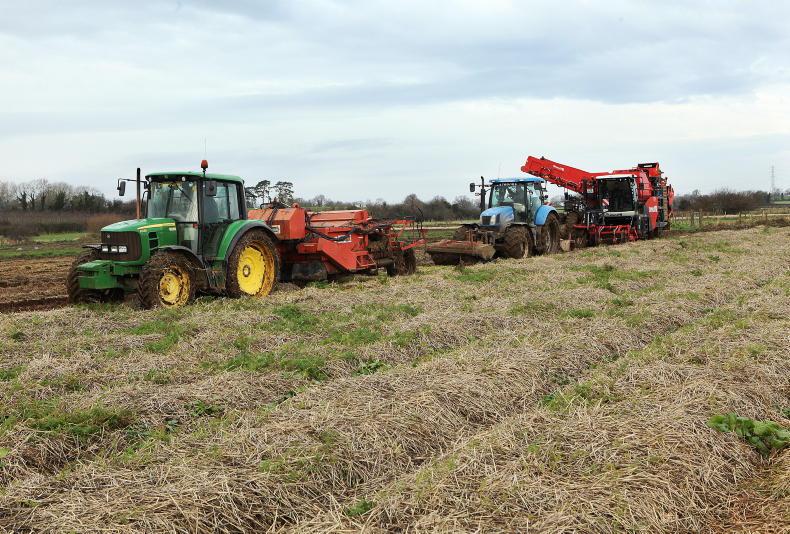Farmers have been aware of the power of Irish retailers for decades now. They have frequently highlighted how they are being squeezed by retailers. Competition may exist between retailers for consumers but their collective control over producers has skewed the market.
The closer producers are to the retailer, the more difficult it is to maintain a margin. Fresh fruit and vegetable producer numbers have plummeted. Even dairy co-ops have struggled to make money from fresh milk; only a handful of processors have stayed in that game.
We’ve seen protests, blockades at central distribution centres and slow shopping from farmers, but the dynamic has remained unchanged. That’s why food consistently fell in price in real terms between 1990 to 2020, as shown by the consumer price index.
Last year, retailers had to respond to the unprecedented rise in food production costs. They did, although it was a slow pull for the fruit and vegetable sector in particular. It didn’t stop them making spectacular profits in 2022.
Now we are seeing huge pressure on food prices, with the suspicion among farmers that they will have any retail price reductions passed entirely back to them.
It seems Neale Richmond, the Minister of State with responsibility for Employment Affairs and Retail Business, learned last week just how much power retailers have. His summit meeting with them over food pricing was pitched by some commentators as an “abject failure”.
Farmers have to hope that the Agri-Food Regulator will have more power, whenever that person is appointed and given some powers.
Unrealistic expectations
We also have the “wonky fruit” issue running parallel. The IFA is highlighting that unrealistic expectations of food uniformity are leading to food waste and to squeezed margins for producers. That false image of food as uniform has been peddled to consumers by retailers. It runs counter to sustainability goals, and puts pressure on growers to increase the protection levels for their crops, at a time when the call from Brussels and our own Government is to cut pesticides and fertiliser.
The nutritional value of food and its sustainability footprint should matter more
“Wilful waste makes woeful want,” the old saying goes. And the danger for consumers is that if Irish growers are priced out of the market by cheap imports, the day will come when the imports dry up, but the Irish growers are gone. Then what?
Retailers, Government and consumers may think that last year was an aberration, a one-off, and that food is on its way back to being a cheap commodity extracted from producers by retail giants. It is more likely that 2022 was a warning from the future that the era of cheap food is ending.









SHARING OPTIONS